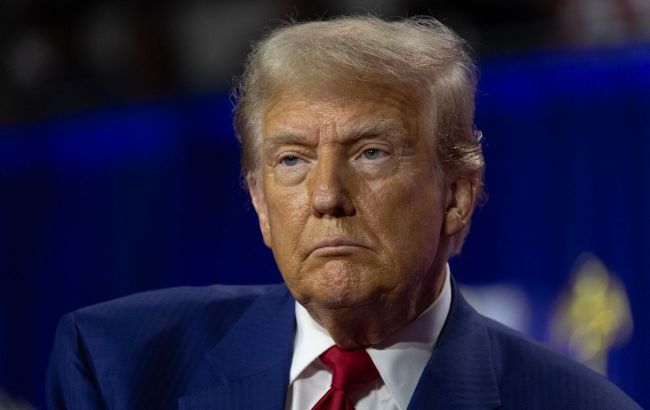Trump prepares to seize power even if he loses election
 Donald Trump (Getty Images)
Donald Trump (Getty Images)
Donald Trump may not only make a second attempt to overturn the results of an election he lost but, together with his allies, is already laying the groundwork for it, citing Politico.
According to the report, Trump has already made such an attempt. But 2024 is not 2020. This time, Trump’s path to achieving his goal is even more extreme.
"The threat remains," said Tim Heaphy, who led the investigation into Trump’s attempts to challenge the election results for the January 6 House Select Committee.
Firstly, Trump no longer has some of the tools he threatened to use four years ago to overturn the transfer of power. Today, the military and the Department of Justice are accountable to Joe Biden.
Trump will also need allies to win the election, allowing them to overturn the defeat: undoing Kamala Harris’s victory will require significant help from Republican power players in state legislatures and Congress, some of whom rejected him four years ago.
Trump’s first attempt to exploit loopholes in the American democratic system also led to real action from Congressional Democrats. Changes to the Electoral Count Act after Trump’s 2020 attempt were aimed at binding vote counters, election officials, and even Congress to the results certified by state governments, theoretically making election manipulation more difficult.
However, Trump is entering the 2024 race with the lessons of his failed attempt to overturn the 2020 results. His incentive to regain power and the protection of the White House is likely stronger than ever: if he loses, Trump faces a barrage of criminal proceedings that could last a lifetime. If he wins, they are likely to disappear.
"No one knows exactly what Trump’s attack on the electoral system will be in 2024," said January 6 Committee member Rep. Jamie Raskin (D-Md.). "What will he do this time?"
Power grab plan
According to lawmakers, congressional investigators, party figures, election officials, and constitutional law experts, the plan looks something like this:
- He will deepen distrust in the election results by making unsupported or hyperbolic claims of widespread voter fraud and mounting longshot lawsuits challenging enough ballots to flip the outcome in key states.
- He will lean on friendly county and state officials to resist certifying election results — a futile errand that would nevertheless fuel a campaign to put pressure on elected Republican legislators in statehouses and Congress.
- He will call on allies in GOP-controlled swing-state legislatures to appoint “alternate” presidential electors.
- He will rely on congressional Republicans to endorse these alternate electors — or at least reject Democratic electors — when they convene to certify the outcome.
- He will try to ensure Harris is denied 270 votes in the Electoral College, sending the election to the House, where Republicans are likely to have the numbers to choose Trump as the next president.
Some of the necessary ingredients for this extraordinary campaign are already in place. Trump has launched a clear mission to stoke as much uncertainty as possible about the election results.
He claims that the only way to lose to Harris is if Democrats cheat, despite no evidence of significant fraud in 2020 or any indication of it in 2024. Loyal allies have picked up on these messages.
And many officials who stood in Trump’s way four years ago have been removed or stepped down, replaced by more compliant successors who support Trump. Meanwhile, threats against election officials and concerns about civil unrest have grown—potentially at polling stations, vote counting locations, and Electoral College ceremonies — which Trump’s opponents fear could fuel any campaign to undermine the election.
It’s possible that Trump and his allies may not launch a cohesive effort to overturn his defeat. A convincing Harris victory would make it harder for Trump to rally Republicans to his side.
But overall, election observers, elected leaders, and even some of Trump’s allies agree on one working premise: on election night, regardless of what the results show, how many votes remain uncounted, or how many advisers tell him otherwise, Donald Trump will declare himself the winner.
From there, he could begin a risky but plausible plan to overturn the legitimate election results and take the White House.
As a reminder, the US presidential election will take place on November 5.

